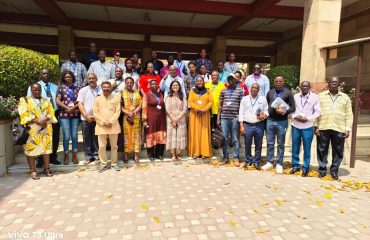The Ministry of Lands, Housing, and Urban Development has kicked off an exercise to hand over 44,425 freehold titles to landowners in 13 districts. The titles were processed under the Systematic Land Adjudication and Certification (SLAAC) programme, a government initiative aimed at securing land rights for citizens.
Through this programme, unregistered land and interests are systematically ascertained parcel by parcel. Everyone rich or poor, educated or illiterate, vulnerable or marginalised is included in securing their rights under this highly subsidised government intervention.
As government concludes implementation of the NRM 2021–2026 Manifesto, the commitment to help landowners acquire legal titles remains strong. Land registration is being prioritised to curb disputes, prevent evictions, and protect citizens from the risks of lacking legal documentation.
I encourage citizens to appreciate these efforts and to make full use of land titles to protect and optimally utilise their land without threats. Landowners, local leaders, and stakeholders are also urged to embrace the digitalised land services to regularly check on land interests before making any transactions, as a means of promoting accountability in land management.
The titles will be distributed to the respective Ministry Zonal Offices (MZOs), with lists provided to Chief Administrative Officers (CAOs) and Resident District Commissioners (RDCs) to inform owners to collect their titles promptly. The Ministry has developed guidelines to ensure all registered landowners receive and acknowledge their titles.
The districts benefiting from the SLAAC programme had previously faced serious challenges related to ownership and registration. Land disputes, limited access to credit, and insecurity due to evictions were common. With the issuance of freehold titles, these challenges are being addressed, giving citizens secure tenure and greater confidence in their land rights and the NRM government.
The programme also aligns with President Yoweri Museveni’s vision of transforming livelihoods, particularly in rural areas. Through the Parish Development Model (PDM), government is promoting economic development, reducing poverty, and improving household incomes. Access to formal land titles creates opportunities for investment, access to credit, and productive use of land.
At the recent handover ceremony at the Data Processing Centre, Entebbe, the Minister of Lands, Housing, and Urban Development, Hon. Judith Nabakooba, emphasised the government’s commitment to securing land rights. She underscored the importance of the Uganda National Land Information System (UGNLIS), a public portal where citizens can check land status, confirm ownership, and track transactions. The Minister encouraged stakeholders to leverage this platform for transparency and accountability in land management.

It should be noted that the SLAAC programme has significantly reduced the cost of land registration from UGX 8–10 million per parcel in the past, to a subsidised fee of just UGX 85,000. This makes land registration more accessible to ordinary citizens.
So far, freehold titles have been processed for six MZOs: Soroti, Jinja, Mbarara, Masindi, Lira, and Arua. The distribution by district is as follows:
- Bukedea: 2,787 titles
- Serere: 1,519 titles
- Soroti: 1,279 titles
- Kamuli: 7,458 titles
- Luuka: 642 titles
- Jinja: 494 titles
- Mayuge: 3,260 titles
- Isingiro: 2,978 titles
- Ntungamo: 3,618 titles
- Sheema: 2,733 titles
- Kikuube: 8,728 titles
- Maracha: 4,313 titles
- Oyam: 4,616 titles
In conclusion, government’s efforts to secure land rights for citizens demonstrate its firm commitment to promoting economic development and reducing poverty. As we prepare for the qualitative leap forward, landowners are urged to embrace digital services, verify land interests before making transactions, and use their new titles as a foundation for investment and sustainable livelihoods.
By Male Solomon Grace, Communications Officer at the Government Citizen Interaction Centre (GCIC) at State House Uganda




